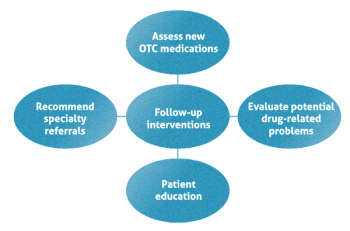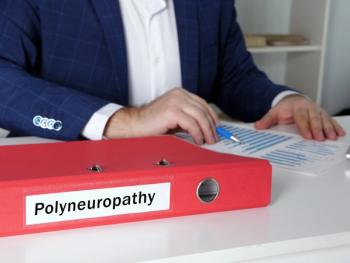
Pharmacists should provide guidance on issues such as proper drug disposal and potential drug interactions.


Pharmacists should provide guidance on issues such as proper drug disposal and potential drug interactions.

Quitting treatment may significantly improve severe hypertension in patients with hepatocellular carcinoma.

The risk of heart failure was higher in low- and middle-income countries when compared to high-income countries.

Population well-being was associated with cardiovascular disease morality and rates of conditions such as hypertension, diabetes, and obesity.

The novel treatment may be able to generate new cardiac tissue to create a functional human heart muscle.

An expert panel discussed the outreach of social determinants of health in community pharmacy care and how pharmacists can help patients find and access resources.

Patients with ST-segment elevation myocardial infarction who are uninsured were not found to be transferred between facilities at a higher rate than insured patients, and the amount of transfers were instead based more on the capability of a facility to provide percutaneous coronary intervention in a timely fashion.

Extended use of an N95 mask in daily life can cause various cardiopulmonary stresses, such as reduced respiration, elevated heart rate and blood pressure, and increased energy expenditure.

VALOR HCM is the second study to show that mavacamten can significantly reduce symptoms of obstructive hypertrophic cardiomyopathy, which includes left ventricular outflow tract.

STRONG-HF aimed to study whether rapid-dose escalation of guideline-directed heart failure medications was more beneficial than usual care.

Treatment with Injectafer significantly improved exercise capacity compared to placebo in a randomized clinical trial in adult patients with heart failure.

Management of heart failure focuses on avoiding reversible precipitants and optimizing guideline-directed therapy to lower mortality and hospitalizations.

Comprehensive in-hospital planning, postdischarge follow-up, ongoing support are key.

These appointments help identify medication-related problems and serve as a platform for additional education.

Approximately 56.6% of young adults with advanced heart disease prefer to be involved in end-of-life decisions if they were very ill, with nearly all patients saying that they would also like their parents to be involved.

Dapagliflozin was established as the first SGLT2 inhibitor that demonstrated a mortality benefit for cardiovascular death from heart failure.

There was a decreasing trend for new-onset atrial fibrillation incidence with higher cumulative doses of dexmedetomidine.

Study shows eplontersen maintains a consistent and sustained treatment effect and reinforces its potential treating hereditary transthyretin-mediated amyloid polyneuropathy, which can lead to heart failure.

Less than 20% of physicians were open to starting a patient with nonvalvular atrial fibrillation on an anticoagulant after conducting a clinical review of the patient’s care.

The results of a review, published in Cureus, show that the medications reduced the risk of HF.

The risk of a second stroke after intracerebral hemorrhage (ICH) did not differ by index hematoma location, and this risk was higher for ischemic stroke than ICH.

Many long-term therapies rely solely on load amelioration, but new ones are needed, according to investigators.

In the treatment of heart failure with reduced ejection fraction, combination therapy is the most effective in reducing all-cause death.

Data indicated that waist-to-height ratio is a better indicator of outcomes in patients with HF than body mass index.

Key lifestyle risk factors for chronic diseases and cancers include tobacco use, poor nutrition, lack of physical movement, and obesity.